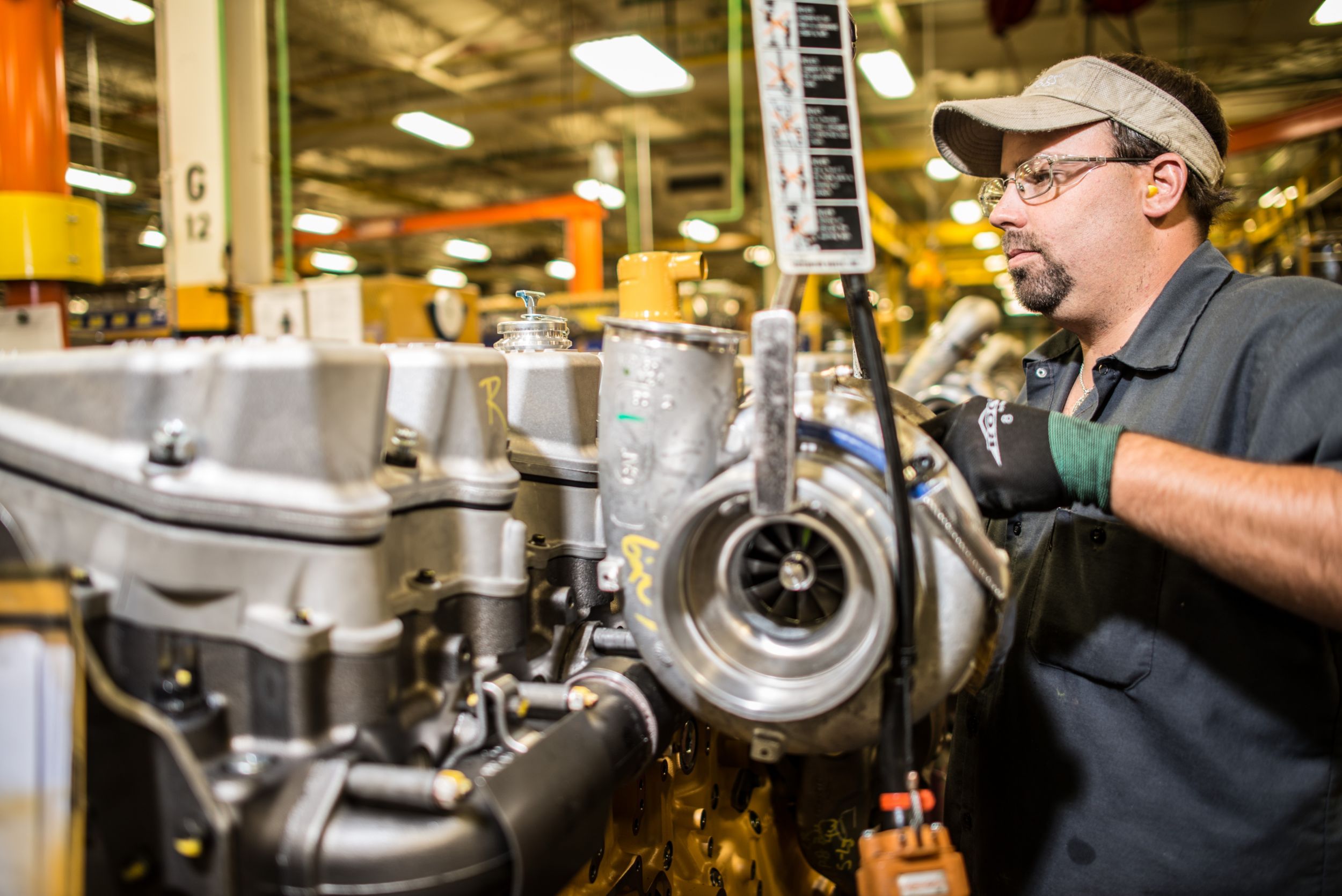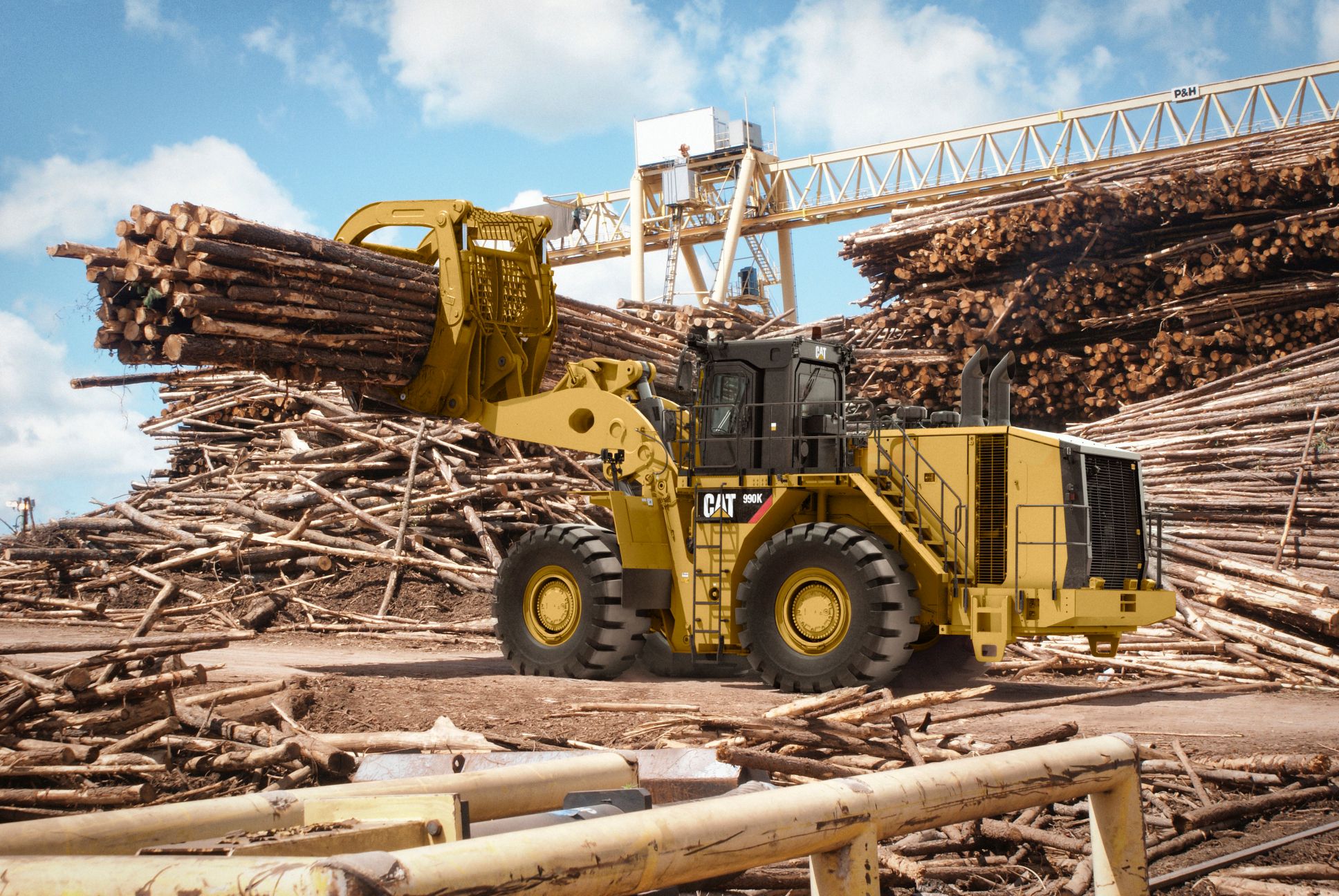

Sign In
Welcome! Sign In to personalize your Cat.com experience
If you already have an existing account with another Cat App, you can use the same account to sign in here
Register Now
One Account. All of Cat.
Your Caterpillar account is the single account you use to log in to select services and applications we offer. Shop for parts and machines online, manage your fleet, go mobile, and more.
Account Information
Site Settings
Security
Author: Small Business Expert | July 10, 2020 | Topic: Used Equipment
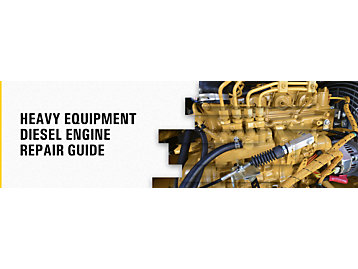
The engine is the most important part of any vehicle, and this is no different for diesel-powered heavy equipment. If your engine is not in optimal condition, it can wreak havoc on your operational efficiency or even bring your projects to a standstill.
You can avoid these bumps in the road by performing regular maintenance on your heavy equipment and conducting repairs before these concerns grow more serious. You may not know where to start if you're wondering how to maintain your diesel engine or which parts should be on your inspection schedule. Fortunately, this guide can help you make the necessary decisions concerning your diesel engine equipment, freeing up your time, resources and money for other work.
Importance of Diesel Engine Maintenance
Maintaining your diesel engines is essential to keep your heavy equipment running as it should. Diesel engine maintenance saves you money on potential breakdowns and repairs that you'd otherwise spend thousands of dollars on. By preserving the condition of your engine ahead of time, you can avoid the costs of reactive maintenance and unplanned downtime.
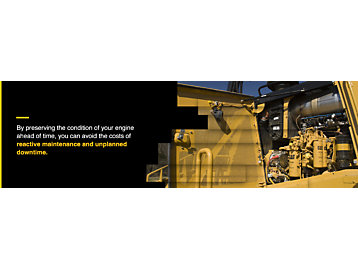
Unplanned equipment downtime can arise for various reasons, including site management techniques and project-level factors. If a site manager can't secure parts for a machine needing repairs, they'll spend more time searching the market, resulting in increasing idle time for that machinery. They may introduce new machinery or construction methods while waiting for spare parts, which can set back workers who don't have prior training in those areas. As a result, the entire project slows down.
Downtime can create a broad range of additional costs, both tangible and intangible. These may include repairs, labor, loss of production time and extended overhead. It's easy to see how quickly the impact of downtime adds up, which is why it's essential to conduct regular preventative maintenance to avoid common diesel engine problems.
Your diesel engine keeps your machine running, acting as its heart and brain. If this component is in less-than-ideal condition, it remains vulnerable to operational defects. Diesel engines are built very differently from gas versions, with their high compression rates and compression-ignition components. Though these features make them undoubtedly more high-powered than gas engines, they also leave diesel engines more susceptible to overheating and wear and tear.
However, your diesel motor can give you a long life of dependable power if you care for it the right way.
Common Diesel Engine Problems
Whether you're doing preventative or reactive maintenance, there are many common issues you may encounter when inspecting your engine. If you need to know how to repair your equipment's diesel engine, you must first understand what the problem is and what's causing it. Many diesel engine issues can be caused by several different components within a machine. That's why it's important to conduct a thorough inspection of each element before making a definitive judgment of the cause.
Some issues are simpler to solve than others, but you don't want to wait until your machine is entirely out of commission to take action. Here are some common defects you may encounter when dealing with diesel engines:
- Lack of air or fuel: Diesel engines need both air and fuel to run. One reason why your diesel engine won't start or why it randomly turns off is that there is too much or too little of one of these components. If this issue is the culprit, bleed your system of air, check your fuel filters for blockage and replace them if need be.
- Glow plug issues: Defective glow plugs will prevent your equipment from starting, especially in cold weather. You may also experience issues like hard starting and engine deceleration. If this happens, inspect the wiring first — if it's in normal condition, then the likely solution is to replace your plugs.
- Overheating: Because diesel engines generate a high degree of heat from compression, they have may occasionally overheat. That is especially true if a piece of heavy equipment has clogged fuel injectors or a damaged cooling fan. Luckily, a broken cooling fan may only require a few repairs rather than replacement.
- Fuel contamination: Diesel is an energy-dense, viscous substance, which increases its chances of becoming contaminated, unlike lighter fuels like petrol. Contaminants can be anything from water and microbes to metal particles. Water is particularly destructive to an engine, as it can easily enter the fuel tank and cause microbial growth, reduced lubrication and lowered energy production.
- Battery issues: Failing batteries can cause an imbalanced compression ratio, which can damage your starter system. Similarly, corroded contacts can decrease the amount of power reaching your starter, which results in your engine losing this energy as heat.
Signs Your Diesel Engine Needs Repair or Servicing
How do you diagnose a diesel engine problem? Your machine may display several signs of imminent engine failure, depending on how severe the problem is and what components it is affecting. Watching for these symptoms will help you catch any issues before they can escalate and interfere with your operations. If you notice your heavy equipment diesel engines displaying any of these tells, it's time to plan for some repairs:
- Discolored exhaust: Your engine exhaust can vary in colors — black, blue and white — with each hue signaling a different concern. Black exhaust usually indicates that the engine is using more fuel than air, though it may also be a result of a faulty turbocharger. White smoke accompanies defective fuel injectors, which leave behind some unburned fuel as they work. Blue smoke, though rarer, signals burning oil.
- Lack of acceleration: Decreased acceleration can occur because of low compression, which may arise from faulty exhaust or intake valves or a broken head gasket. Worn piston rings are often another culprit for a loss of speed.
- Low voltage: If you're struggling to start your engine, you can check the voltage to see exactly what the problem is. A fully-charged battery will read at least 12.6 volts, while an undercharged one will be less than 12.2 volts. Similarly, your engine needs a cranking voltage of nine volts to start. Anything less than that means your battery isn't generating enough power to start the engine.
- Increased fuel consumption: You may notice your engine is consuming more diesel than usual. This common diesel engine problem is a result of dirty air filters, old oil or faulty oxygen sensors — if your machine has them. Oil becomes thicker as it ages, and since diesel is already quite viscous, this can cause your machinery to eat up more fuel to compensate for resistance.
- Hard starting: Hard starts can come from a range of issues, including defective glow plugs or a faulty fuel injector. You can expect your heavy equipment diesel engines to take longer to start in winter — this is a relatively normal occurrence. However, if it's not a cold climate or if the engine is taking longer than normal, there could be a concern with fuel delivery or compression.
Diesel Engine Maintenance
With proper maintenance, you won't have to worry about if your construction equipment diesel engines are working correctly. Address potential issues and extend your fleet's lifetime before these concerns snowball into disasters. It's crucial to follow the manufacturer's directives for your particular machine, as this will give you the optimal strategy for servicing your diesel engine. Taking the guesswork out of maintenance saves you time and money.
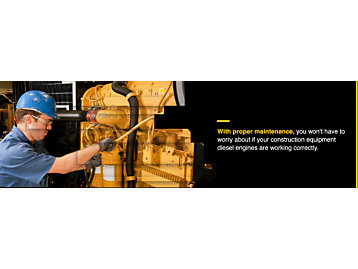
Upkeep should also depend on your specific work environment and the applications you use the machinery for. Manufacturer specs give you a starting point, but if you use your heavy equipment more frequently or in harsher conditions, you should adjust your schedule to compensate for these factors. That way, you can avoid expensive breakdowns and engine failures and keep your fleet running as smoothly as possible.
Diesel engine maintenance consists of a few core components, such as:
- Changing your air, oil and fuel filters.
- Conducting a fluid analysis.
- Replacing old or faulty parts.
- Refilling the injection system.
- Winterizing your equipment for cold weather use.
- Draining water separators.
Winterization is one step you don't want to skip — as cold weather can be hard on diesel engines. With the proper upkeep, you can sustain worksite efficiency on all your construction projects even though the chilliest months. An adequate round of servicing focuses on components like belts and hoses, water control elements, filters and batteries. It's also a good idea to switch to an anti-gelling fuel or introduce low-temperature additives to your fuel tank.
Recommended Maintenance Schedule
You know servicing your engine is crucial, but how often should you check it and its components? That answer may vary due to previously mentioned factors such as frequency of use and job site conditions. However, a general schedule can guide you in the right direction. Mark your calendar and make sure you never miss another round of maintenance checks and repairs.
How to Repair a Heavy Equipment Diesel Engine
How you conduct your repairs will depend on which elements are malfunctioning — all require different procedures. The best way to service your engine is to get in the field and see what's happening with it up-close.
In some situations, you may find it best to enlist help from a professional repair service. They can diagnose your diesel engine problems and perform the necessary work quickly and easily. Their services remove the uncertainty of performing diagnostics yourself, ensuring your heavy equipment receives the necessary care to continue functioning.
Choose Diesel-Powered Heavy Equipment From Caterpillar
When you need dependable equipment with a high-powered diesel engine, Cat® machines can provide a solution. Our Cat Certified Used machines work just as efficiently as any new model, thanks to our rigorous inspection and servicing processes. Cat Certified Used equipment undergoes up to a 140-point inspection to ensure it meets our high standards for reliable performance and unmatched quality.
Employing preventative maintenance techniques for your diesel engines can save your wallet — and so can buying used equipment. Upgrade your fleet at an affordable price and reap the benefits of our Cat dealer network. You can count on your local dealer to be there with exactly what you need to keep your machine up and running: parts and repair options, maintenance service and much more. If you're ready to invest in used heavy-duty Cat machines for the toughest applications, find a dealer near you.
